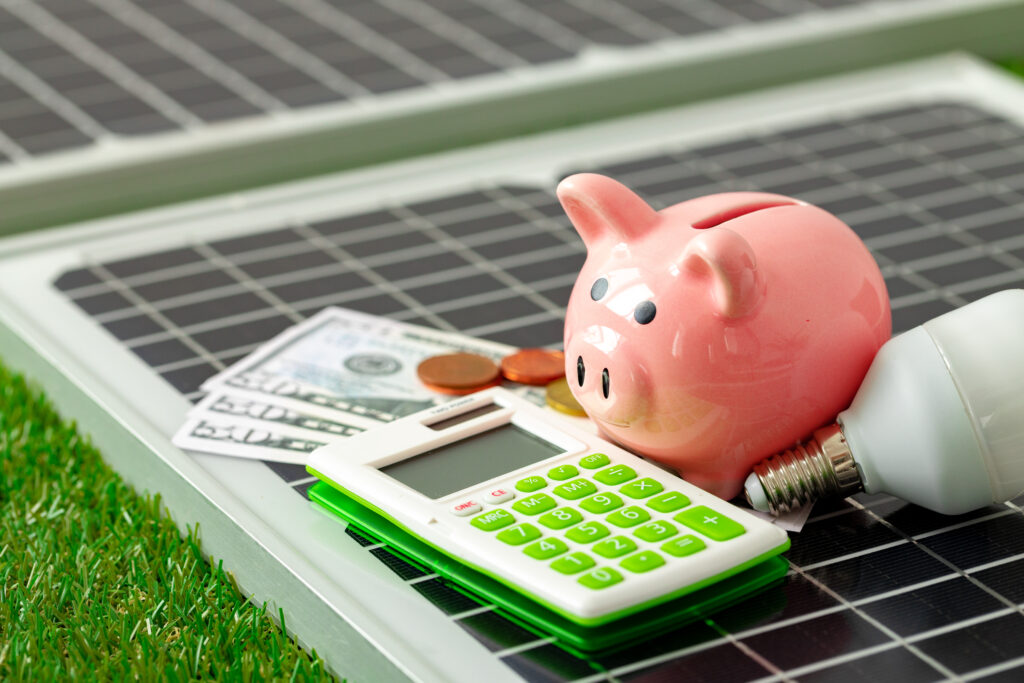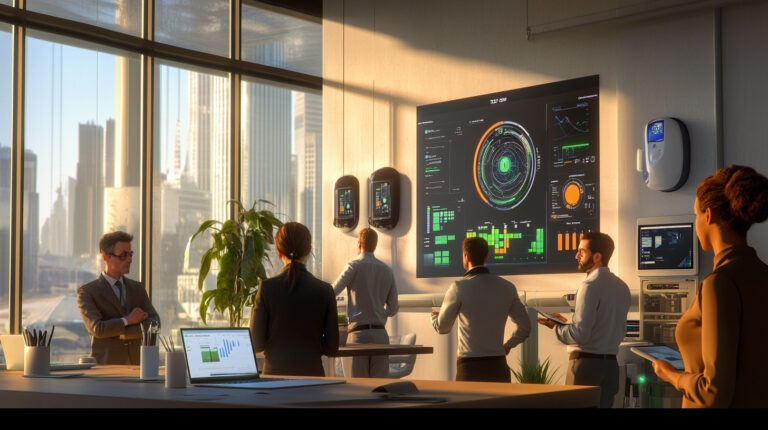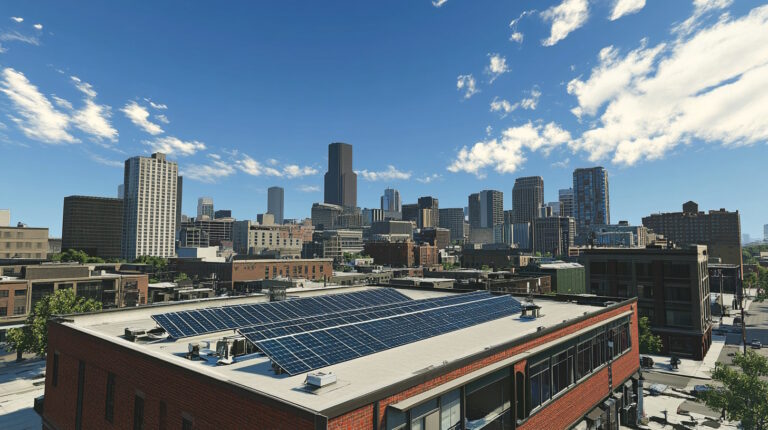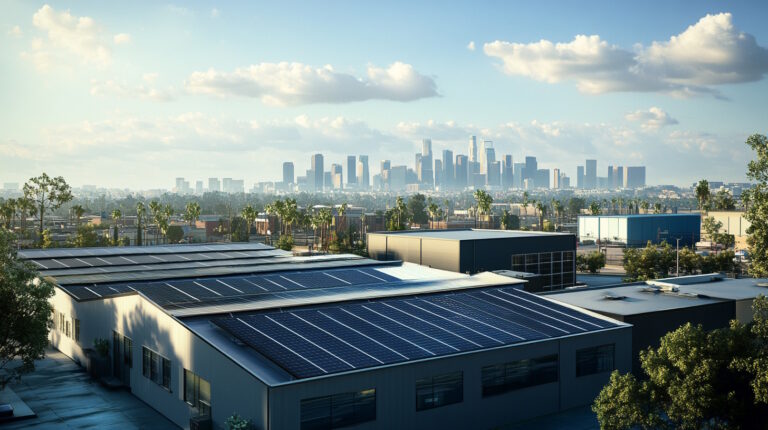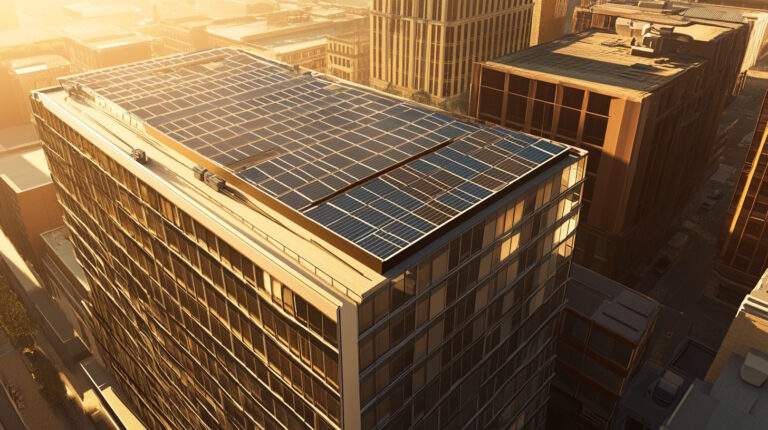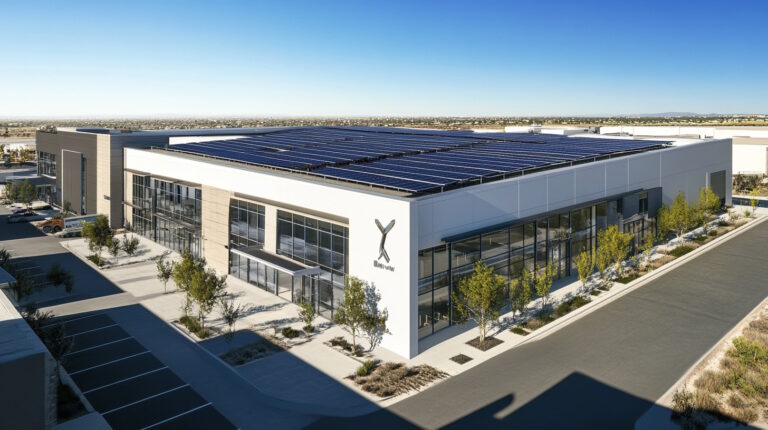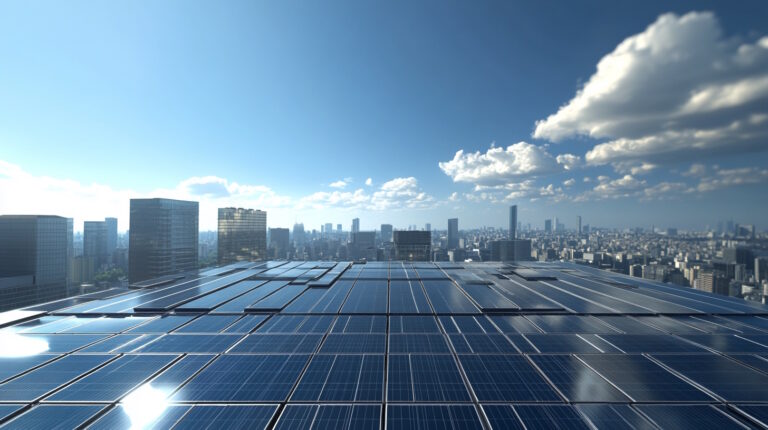Article Insights
- Discover the differences between commercial solar leasing, ownership, and power purchase agreements (PPAs).
- Learn the advantages and disadvantages of each solar acquisition option to make informed decisions.
- Understand how to choose the best option for your unique business needs and financial goals.
- Gain insights into the long-term benefits of solar energy for commercial property owners.
As the demand for renewable energy continues to rise, commercial property owners are increasingly turning their attention to solar energy solutions. With various options available—each with its own set of advantages and drawbacks—it’s essential to understand the differences between commercial solar leasing, outright ownership, and Power Purchase Agreements (PPAs).
This article will guide you through these options, empowering you to make informed decisions that align with your business goals and financial objectives.
What is Commercial Solar Leasing?
Commercial solar leasing allows businesses to utilize solar energy without the burden of ownership. Under a lease agreement, a third-party provider installs and maintains the solar system on your property, while you pay a fixed monthly fee for using the energy produced.
This option is particularly attractive for those who prefer to avoid the upfront costs associated with purchasing solar panels outright.
Leasing is beneficial for businesses that may not have the capital to invest in solar technology immediately but still want to take advantage of renewable energy.
In many cases, the monthly lease payments can be lower than traditional electricity bills, providing immediate savings on energy costs.
Advantages and Disadvantages of Solar Leasing
One of the primary benefits of commercial solar leasing is the reduced financial burden. Since the leasing company covers installation and maintenance costs, businesses can enjoy solar energy without the hefty upfront investment.
Moreover, many leasing companies offer options that include tax incentives, allowing you to benefit from savings that can be used to offset lease payments.
However, there are some drawbacks to consider. When you lease a solar system, you do not own it, which means you might miss out on certain tax credits available to system owners.
Additionally, you may have limited control over the system’s design and performance, depending on the terms of the lease agreement. Lastly, long-term savings could be less significant compared to outright ownership.
Understanding Solar Ownership Options
For those who prefer full control over their energy systems, purchasing a solar system outright is an appealing option. When you own your solar panels, you have complete authority over their design, installation, and maintenance.
This can lead to higher long-term savings, especially with the federal solar tax credit, which allows you to deduct a percentage of your solar installation costs from your federal taxes.
Financing options are also available for commercial property owners who wish to invest in solar systems without paying the full cost upfront.
By taking advantage of solar loans or financing plans, you can spread the cost of your investment over time while still benefiting from the advantages of ownership.
Advantages and Disadvantages of Owning Solar Systems
Owning a solar system offers several significant advantages. First and foremost, you have the freedom to customize your system to meet your energy needs.
You also retain the potential for substantial long-term savings on energy bills, as well as the ability to benefit from various incentives and tax credits.
However, the downside of ownership lies in the upfront costs. While financing options exist, the initial investment can still be considerable. Additionally, you will be responsible for ongoing maintenance and repairs, which could lead to unforeseen expenses.
Therefore, while ownership can be lucrative in the long run, it requires careful financial planning and a willingness to handle maintenance responsibilities.
What is a Power Purchase Agreement (PPA)?
A Power Purchase Agreement (PPA) is another alternative for commercial property owners seeking to incorporate solar energy into their operations. Under a PPA, a third-party provider installs and maintains the solar system, while you agree to purchase the power generated at a predetermined rate.
This model is often attractive to businesses that want to enjoy the benefits of solar without the upfront costs or maintenance responsibilities.
The pricing structure of a PPA typically offers competitive rates, often lower than traditional utility rates, which can lead to immediate cost savings.
Additionally, PPAs often have terms that align with the expected lifespan of the solar system, making them a stable long-term energy solution.
Benefits and Drawbacks of PPAs
The primary advantage of a PPA is that it provides a no-upfront-cost solution for accessing solar energy. You can enjoy lower energy bills without the responsibilities of ownership.
Furthermore, since the provider handles installation and maintenance, you can focus on running your business while reaping the rewards of renewable energy.
However, it’s important to consider that a PPA is a long-term commitment. You may be locked into a contract for 15 to 20 years, which can lead to potential complications if your energy needs change or if you decide to sell your property.
Additionally, the pricing structure of a PPA may not always be as favorable as ownership, particularly over the long term.
Which Option is Right for You?
When deciding between commercial solar leasing, ownership, and PPAs, it’s crucial to assess your business’s financial goals, property type, and energy needs.
Each option has its unique benefits and potential challenges, so consider factors such as your budget, how long you plan to stay in the property, and your willingness to manage maintenance tasks.
For businesses prioritizing immediate cost savings with minimal hassle, commercial solar leasing or a PPA may be the best choice.
On the other hand, if you are looking for long-term benefits and full control over your energy system, purchasing a solar installation could be the ideal path.
Making the Right Solar Choice for Your Business
In conclusion, understanding the differences between commercial solar leasing, ownership, and Power Purchase Agreements is essential for commercial property owners looking to invest in renewable energy.
Each option offers distinct advantages and challenges, making it imperative to evaluate your specific needs and financial goals. By carefully considering these factors, you can make an informed decision that not only meets your energy requirements but also contributes positively to your bottom line and the environment.

